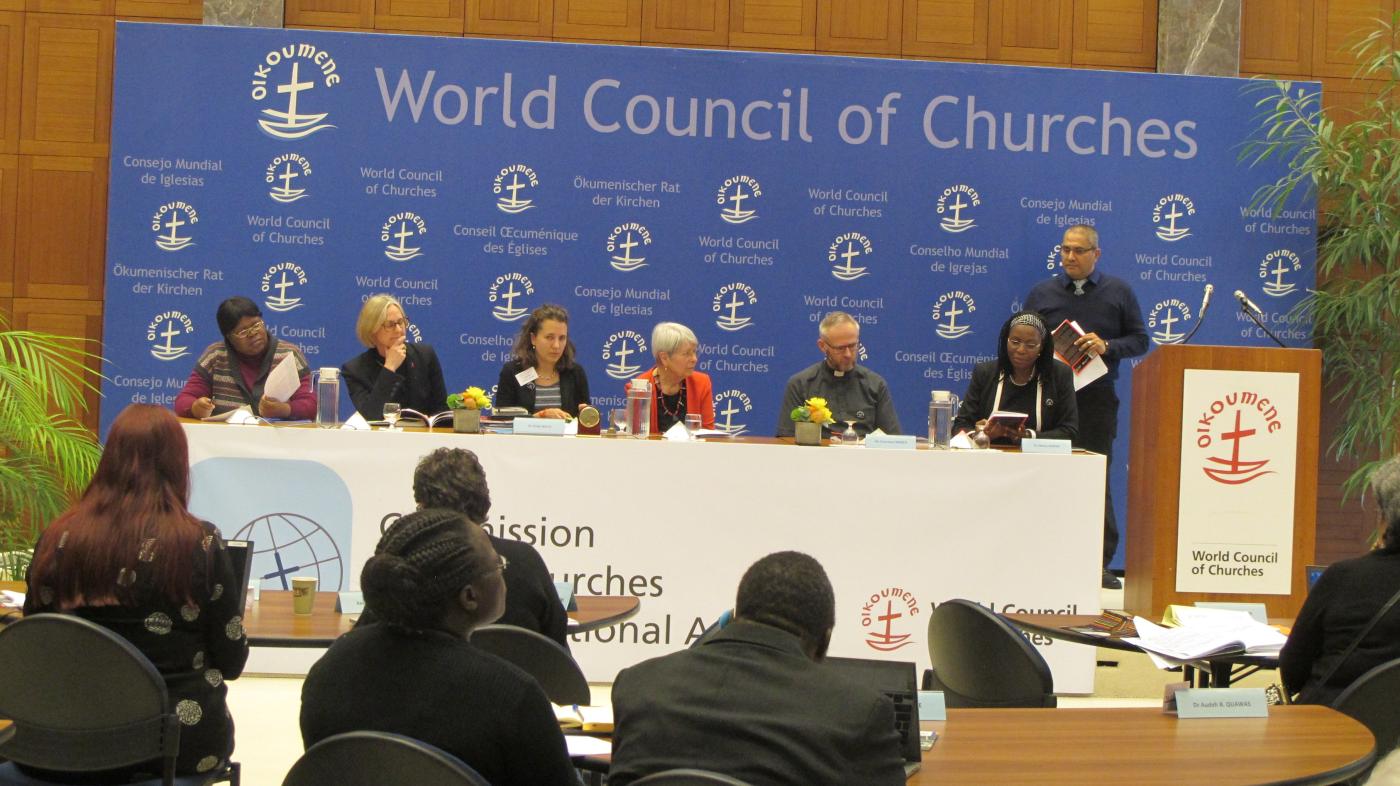With a background in international conflict resolution, peace-building and reconciliation, Professor Emily Welty is uniquely suited to her role as acting moderator of the Commission of the Churches on International Affairs (CCIA) of the World Council of Churches (WCC). She facilitated the commission’s work most recently during its annual meeting in Geneva from 7 through 14 March.
The CCIA is an advisory body within the WCC comprising 35 people nominated by churches and regional ecumenical organizations. The CCIA engages the capabilities of member churches in a shared ecumenical response to international affairs related to peace and justice.
This year’s CCIA meeting focused especially on matters of religion and violence, the COP25 conference on climate change, the refugee crisis and “the economy of life.”
“The dynamics of groups are fascinating, and in a group like this there are cultural differences beyond the usual mix of personality styles,” Welty observes. “It is an honour and a privilege to be asked to take this responsibility, yet it is also a truly humbling experience.”
Welty asks herself, “What does it mean when one person is silent during a discussion? And what if a whole segment of participants hold themselves back from open dialogue? I try to be aware of these dynamics as the commission interacts.”
The consensus approach to decision-making, a protocol in the WCC for more than ten years, can be puzzling for newcomers used to traditional systems of parliamentary procedure. Welty sees the consensus methods as “a good tool for getting a sense of where the group is going as it deliberates.”
Director of Peace and Justice Studies at Pace University in New York, Welty is one of the youngest leaders ever to serve as chairperson or interim chair of a WCC commission. She was elected vice moderator of the CCIA following the 10th Assembly of the WCC at Busan, Republic of Korea, in 2013. She has been serving as acting moderator due to the ill health and demission of the original moderator Rev. Dr Mvume Dandala.
A lay member of the Presbyterian Church (USA), Welty holds degrees from the church-related College of Wooster in the US state of Ohio, American University in Washington DC and the University of London where she earned her doctorate at the School of Oriental and African Studies. She is the co-author (with Matthew Bolton, Meghana Nayak and Chris Malone) of “Occupying Political Science: The Occupy Wall Street Movement from New York to the World.”
For Welty, one of the most significant moments in this year’s meeting was the day on which the CCIA visited the Geneva headquarters of the United Nations and attended a session of the Human Rights Council (HRC). The day before their visit, WCC commissioners heard a presentation by UN special rapporteur on freedom of religion or belief, Heiner Bielefeldt. The next day, they heard him give his formal report to the HRC.
“It is important for commissioners to see and experience the UN,” she says. “A visit like this humanizes the UN for people. It underlines the accessibility of the institution.”
Welty expresses her appreciation as an interim moderator for the opportunity to meet with leaders of other ecumenical commissions: “From the viewpoint of an average commission member, one seldom has a sense of what all the other commissions are doing – Faith and Order, mission and evangelism, education, and so on. I had never had access to the moderators’ meeting until recently, and it increased my appreciation for the broader work of the ecumenical movement beyond my own commission.”
She welcomes the WCC’s current theme of “a pilgrimage of justice and peace,” finding it “integral to who we are.”
“We are part of a process,” she says. “Not just the commissions, but the member churches and other partners and Christians in many places. At the same time, the idea of pilgrimage provides a dynamic and a notion of what we’re walking toward, and how we’re endeavouring to walk. It’s not just that peace and justice are our goal, but they are our preferred means of being, of acting together.”
“So far as the CCIA is concerned,” Welty adds, “we see ourselves as being on the pilgrimage of justice and peace.”






